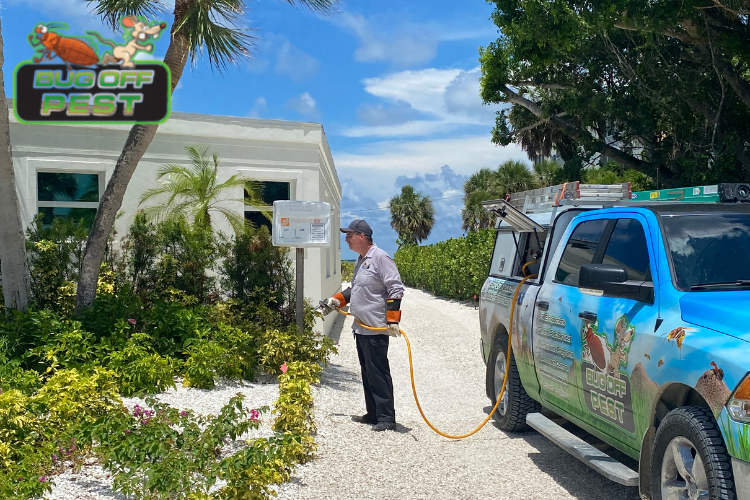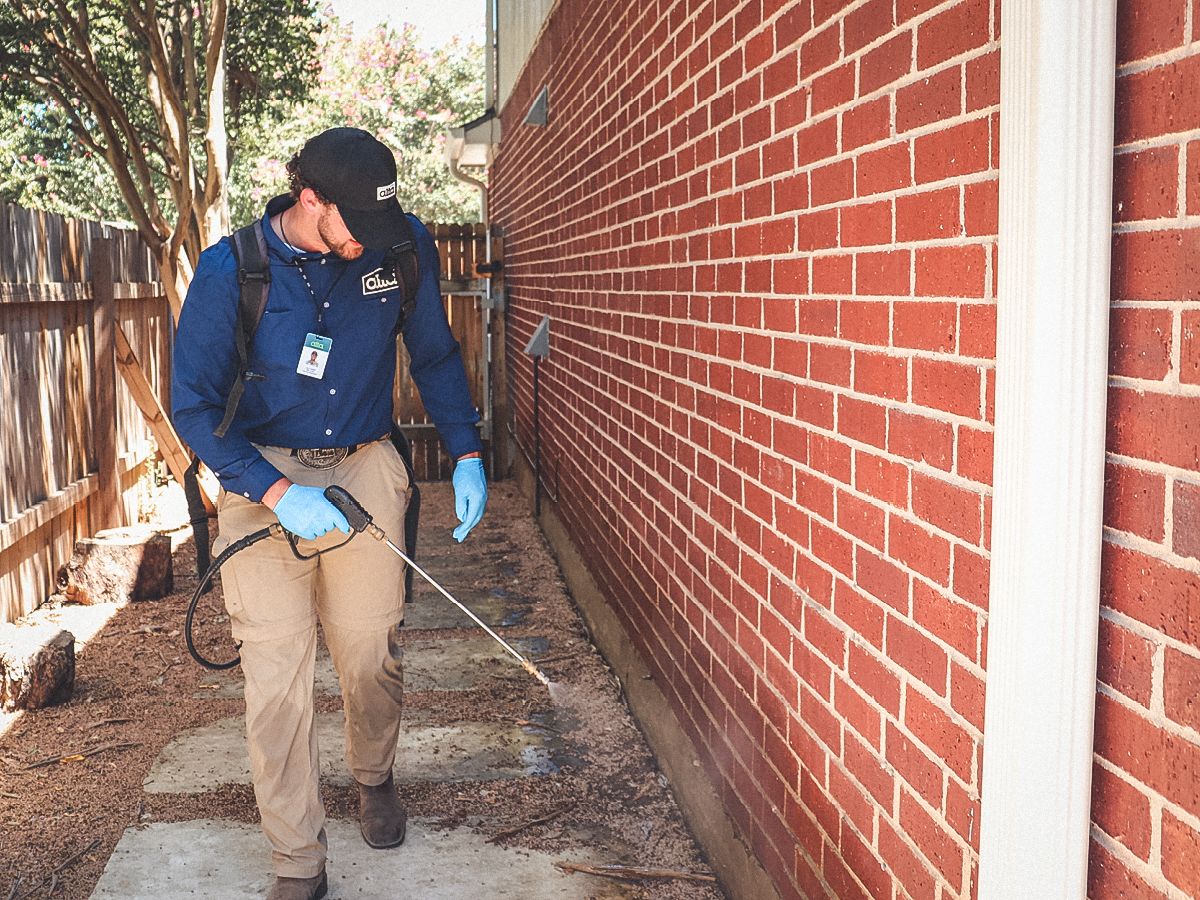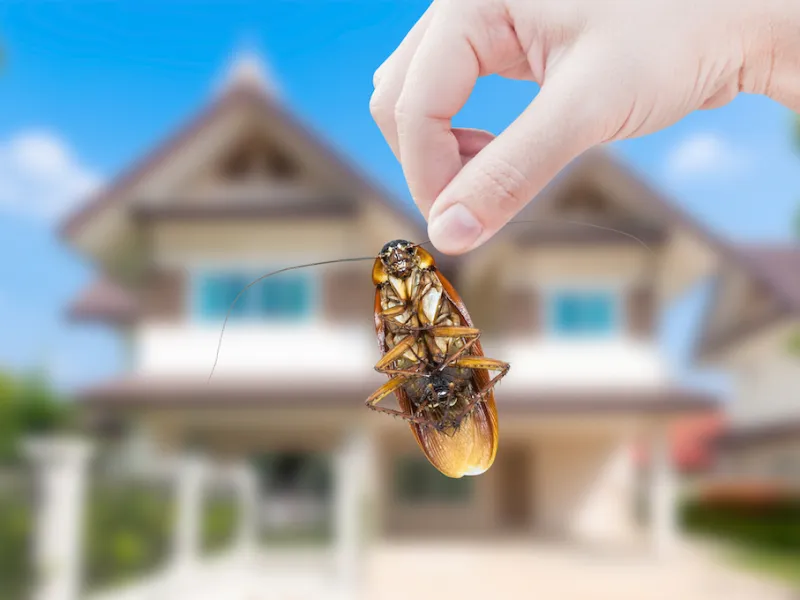Ant Exterminator Near Me: How to Eliminate Ants Fast and Efficiently
Wiki Article
Learn Concerning the most recent Developments in Parasite Control and Just How to Execute Effective Therapy Solutions
In the last few years, the field of bug control has actually seen significant improvements, driven by the need for sustainable and efficient treatment remedies. Ingenious strategies such as Integrated Insect Management (IPM) incorporate green methods with cutting-edge innovation, improving both efficacy and ecological responsibility. The assimilation of smart modern technologies and DIY techniques has actually equipped people to take on insect issues extra effectively. As we check out these growths, it comes to be vital to recognize just how best to execute these approaches in various settings to accomplish optimum outcomes. The effects for pest administration methods can be transformative.Eco-Friendly Pest Control Options
In recent years, the demand for environmentally friendly insect control options has risen as businesses and home owners alike seek lasting options to standard chemical treatments. This change is driven by expanding environmental awareness and a need to reduce the wellness threats related to synthetic pesticides.

Green insect control techniques incorporate a range of methods that focus on making use of natural compounds and methods. Integrated Insect Monitoring (IPM) is one such approach, integrating organic, social, and mechanical strategies to handle parasite populations while minimizing dependence on chemicals (Wildlife removal services). This all natural method emphasizes prevention via habitat manipulation and the introduction of natural predators, consequently fostering a balanced ecological community
Another popular choice is using agricultural pesticides obtained from plants, which have a tendency to be much less hazardous to non-target organisms. Products like neem oil and diatomaceous earth have obtained traction for their effectiveness in controlling bugs while presenting very little dangers to human health and wellness and the setting.
In addition, exemption methods, such as sealing entry points and preserving sanitation, play an essential role in environment-friendly insect management. By adopting these sustainable techniques, people and services can effectively take care of parasites while advertising a healthier planet for future generations.
Smart Technology in Parasite Administration
Development is reshaping the landscape of parasite administration, with wise technology becoming a pivotal force in improving effectiveness and effectiveness - Wildlife removal services. The integration of Net of Things (IoT) tools, expert system (AI), and information analytics is reinventing how pest control specialists approach problems
Smart traps equipped with sensors can spot parasite task in real-time, sending out instant alerts to operators. This permits for timely responses, decreasing damage and minimizing the need for considerable treatments. Furthermore, AI formulas evaluate historic data to anticipate parasite habits, making it possible for proactive treatments based on ecological conditions and invasion patterns.
Drones and computerized cars are additionally playing a significant function in parasite management, supplying airborne assessments of large locations, identifying hotspots, and even dispersing targeted therapies. These technologies not just simplify operations yet also enhance safety and security by limiting human direct exposure to possibly harmful chemicals.
Additionally, mobile applications equip customers to monitor bug task and access expert guidance, promoting a collective approach to pest administration. Generally, the fostering of wise modern technology is establishing a brand-new requirement in bug control, stressing data-driven choices and lasting techniques that inevitably profit both specialists and homeowners alike.
Integrated Insect Management Techniques
Integrated Pest Management (IPM) uses a holistic strategy to pest control, incorporating numerous methods to properly take care of bug populaces while lessening dangers to human health and the setting. IPM focuses on recognizing the pest life cycle, their natural enemies, and the environment in which they flourish.One of the basic parts of IPM is monitoring pest populaces through normal examinations and information collection. This enables the recognition of bug thresholds, determining when treatment is required. Social methods, such as crop environment, turning, and sanitation control, are vital in decreasing parasite occurrence and advertising plant health and wellness.
Mechanical controls, including barriers and catches, are also vital in IPM. These approaches can physically eliminate or discourage bugs without making use of chemicals. When essential, the cautious application of chemical controls is used, concentrating on targeted treatments that minimize ecological effect.
Education and cooperation amongst stakeholders, including farmers, insect control professionals, and the area, are vital for the successful application of IPM techniques. By focusing on lasting practices, IPM not only addresses pest problems yet also promotes a healthier environment.
Biological Control Methods
Various organic control approaches are progressively acknowledged for their effectiveness in managing bug populaces while advertising ecological balance. These strategies harness all-natural predators, bloodsuckers, and pathogens to decrease pest numbers without relying upon artificial chemicals. As an example, the introduction of ladybugs can properly manage aphid populaces, while nematodes target soil-dwelling bug larvae.Additionally, the use of microbial pesticides, such as Bacillus thuringiensis (Bt), gives an eco-friendly alternative for managing caterpillar insects. These products specifically target pest varieties, reducing harm to useful bugs and pollinators. Preservation organic control highlights improving habitats for all-natural adversaries, such as birds and valuable pests, consequently urging their existence in agricultural systems.
Research remains to expose innovative approaches within this field, such as using scents to interfere with pest mating patterns or the development of biocontrol representatives via genetic modification. Implementing these techniques can cause sustainable pest management techniques that alleviate the reliance on chemical treatments, eventually fostering healthier ecosystems. As recognition of these methods grows, they are coming to be essential parts of integrated pest monitoring (IPM) methods, using a balance in between efficient parasite control and environmental stewardship.
Do It Yourself Pest Control Solutions
As homeowners look for effective methods to take on insect concerns, DIY parasite control remedies have obtained popularity for their availability and cost-effectiveness. These methods empower individuals to resolve infestations using conveniently offered materials and methods, often without the need for expert treatment.
Additionally, maintaining appropriate sanitation and routine examinations can stop parasite entry and nesting (Wildlife removal services). Basic techniques, such as sealing fractures, getting rid of food resources, and decluttering, can considerably reduce parasite populaces. Traps, both homemade and readily readily available, can also provide efficient options for surveillance and controlling specific bugs like rats or pests

Verdict
The integration of green pest control choices, clever technology, and ingenious monitoring techniques provides a comprehensive method to efficient bug management. By accepting Integrated Insect Monitoring (IPM) and utilizing organic control approaches, together with do it yourself options, accountable and lasting Termite treatment Port Charlotte pest control can be accomplished. These innovations not only enhance the effectiveness of pest management practices however also contribute to a much healthier setting. Carrying out these approaches cultivates a balanced community while efficiently attending to pest populations.Green bug control techniques include a variety of techniques that prioritize the usage of all-natural substances and techniques. Integrated Pest Monitoring (IPM) is one such strategy, incorporating organic, social, and mechanical strategies to manage pest populaces while lowering dependence on chemicals. As understanding of these methods grows, they are coming to be integral parts of incorporated parasite administration (IPM) techniques, supplying a balance in between efficient insect control and environmental stewardship.
The integration of eco-friendly parasite control choices, smart innovation, and cutting-edge administration techniques presents a comprehensive strategy to effective parasite administration. By accepting Integrated Insect Monitoring (IPM) and using organic control methods, together with Do it yourself services, accountable and lasting pest control can be accomplished.
Report this wiki page